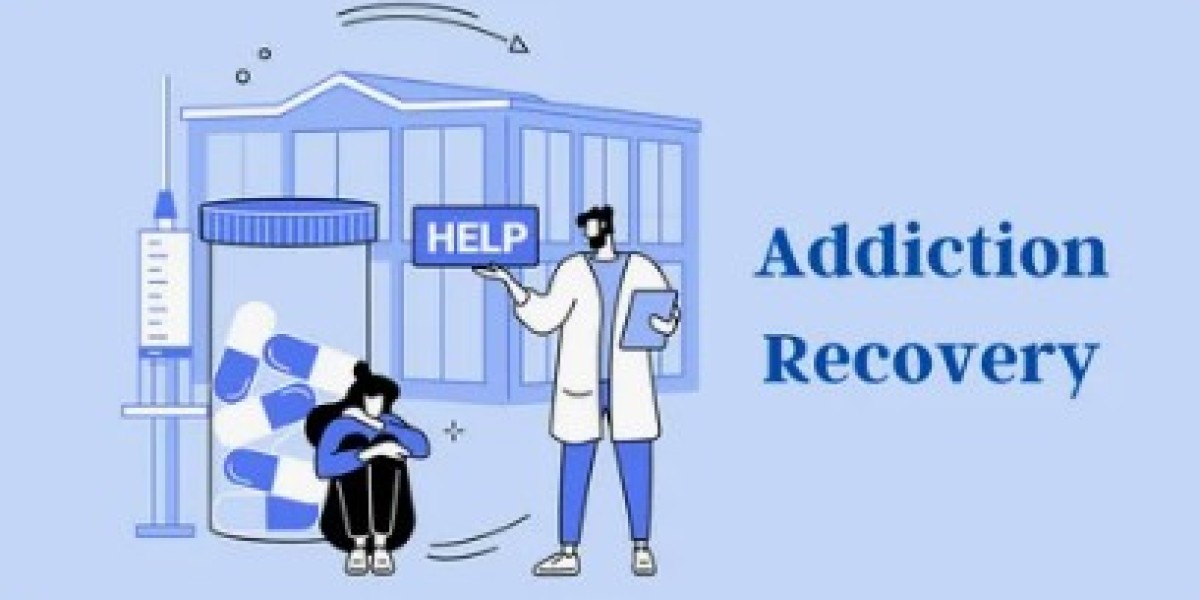Addiction is a complex disease that affects not only an individual’s physical health but also their mental well-being, relationships, and overall quality of life. Overcoming substance use disorders is rarely achievable without professional support, and this is where addiction recovery centers play a crucial role. These centers provide a structured, safe, and supportive environment that helps individuals break free from the grip of addiction and build a foundation for lasting recovery.
What Are Addiction Recovery Centers?
Addiction recovery centers are specialized facilities designed to help individuals overcome substance use disorders, including alcohol, prescription drugs, and illicit drugs. These centers combine medical treatment, psychological support, and behavioral therapies to address both the physical and emotional aspects of addiction. The goal is not just to stop substance use but to provide clients with the tools and coping strategies needed for long-term sobriety.
These centers vary widely in their services, setting, and duration. Some focus solely on detoxification, while others provide comprehensive programs that include therapy, life skills training, and aftercare planning. By offering individualized care plans, recovery centers can meet the unique needs of each person, which significantly increases the chances of a successful recovery.
Types of Addiction Recovery Centers
Addiction recovery centers can be broadly categorized into several types based on the level of care and the services offered:
1. Inpatient or Residential Recovery Centers
Inpatient recovery centers provide 24/7 care in a structured residential environment. Individuals live at the facility for a set period, often ranging from 30 days to several months. These programs offer intensive therapy, medical supervision, and a substance-free environment, which is especially beneficial for those struggling with severe addiction or co-occurring mental health disorders.
2. Outpatient Recovery Centers
Outpatient recovery centers allow individuals to live at home while attending therapy sessions at the center. These programs are ideal for those with mild to moderate addiction, strong support systems, or work and family obligations that prevent them from committing to residential care. Outpatient programs often include individual counseling, group therapy, and educational workshops.
3. Luxury or High-End Recovery Centers
Some addiction recovery centers cater to individuals seeking a more private or upscale environment. These facilities often offer additional amenities, such as spa services, fitness programs, and personalized nutrition plans, alongside comprehensive addiction treatment. While the approach is similar to traditional centers, luxury facilities focus on creating a comfortable, supportive, and distraction-free environment for recovery.
4. Specialized Recovery Centers
Certain centers focus on specific types of addiction or populations. For example, some may specialize in alcohol addiction, prescription drug dependency, or co-occurring mental health disorders. Others might offer programs tailored for young adults, women, or veterans. Specialized care ensures that treatment is customized to address the unique challenges faced by each group.
Core Services Offered at Addiction Recovery Centers
While programs may vary, most addiction recovery centers offer a combination of the following services:
1. Medical Detoxification
Detoxification, or detox, is the first step for many individuals entering recovery. Under medical supervision, the body eliminates harmful substances while managing withdrawal symptoms. Detox is essential for safely addressing physical dependence and laying the groundwork for ongoing therapy.
2. Individual and Group Therapy
Therapy is central to recovery. Individual counseling allows clients to explore underlying issues that contribute to addiction, such as trauma, stress, or mental health conditions. Group therapy provides peer support, accountability, and the opportunity to learn from others’ experiences, fostering a sense of community and shared purpose.
3. Behavioral Therapies
Behavioral therapies, such as Cognitive Behavioral Therapy (CBT) and Dialectical Behavior Therapy (DBT), help individuals recognize negative thought patterns and develop healthier coping mechanisms. These evidence-based approaches are highly effective in preventing relapse and promoting long-term behavioral change.
4. Family Support and Education
Addiction affects the entire family. Recovery centers often provide family therapy and educational programs to help loved ones understand the disease, develop healthier communication, and support the individual’s journey to sobriety.
5. Life Skills and Aftercare Planning
Recovery is more than abstaining from substances; it’s about rebuilding a fulfilling life. Many centers offer vocational training, stress management programs, and aftercare planning to prepare clients for life beyond treatment. Aftercare services, such as ongoing therapy or alumni groups, help individuals maintain sobriety and navigate challenges post-treatment.
Benefits of Attending an Addiction Recovery Center
Choosing to enter an addiction recovery center offers numerous advantages compared to attempting recovery alone:
- Structured Environment: Centers provide a routine that minimizes exposure to triggers and helps build healthy habits.
- Professional Support: Licensed medical and mental health professionals guide clients through detox, therapy, and relapse prevention.
- Peer Community: Being surrounded by others facing similar challenges fosters understanding, accountability, and encouragement.
- Holistic Care: Many centers address physical, emotional, and social aspects of addiction, promoting overall wellness.
- Higher Success Rates: Studies show that individuals receiving comprehensive, structured care are more likely to maintain long-term sobriety.
Choosing the Right Addiction Recovery Center
Selecting the right addiction recovery center is a critical step in the recovery process. Factors to consider include:
- Accreditation and Licensing: Ensure the center meets state regulations and is accredited by recognized organizations.
- Treatment Approach: Look for programs offering evidence-based therapies and personalized care plans.
- Staff Qualifications: Certified addiction specialists, medical professionals, and licensed therapists are essential for quality care.
- Location and Environment: Some may prefer a local facility to maintain family connections, while others might benefit from a secluded setting.
- Aftercare Support: Strong aftercare programs increase the likelihood of sustained recovery.
Overcoming Stigma and Seeking Help
Despite growing awareness, stigma surrounding addiction persists, preventing many individuals from seeking help. It’s important to remember that addiction is a treatable medical condition, not a moral failing. Addiction recovery centers provide a safe space to heal, free from judgment, and with the tools necessary to reclaim a healthy and meaningful life.
Conclusion
Addiction is a challenging journey, but it doesn’t have to be faced alone. Addiction recovery centers offer a comprehensive, supportive environment that addresses the physical, emotional, and psychological aspects of substance use disorders. Whether through inpatient programs, outpatient care, or specialized therapies, these centers empower individuals to achieve lasting recovery and rebuild their lives.
By understanding the types of recovery centers, the services they offer, and the benefits of professional support, individuals and their loved ones can make informed decisions on the path to healing. Recovery is possible, and with the right guidance, every individual can reclaim hope, health, and a brighter future.







